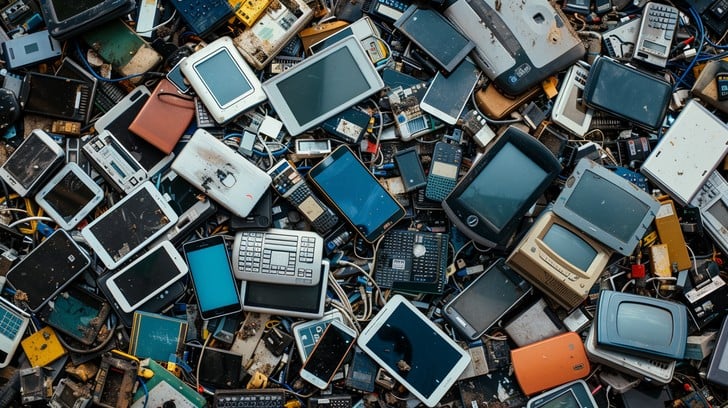The Bulawayo City Council (BCC) has been urged to formulate an electronic waste (e-waste) management policy to improve the collection and disposal of electronic garbage across the city.
This comes after the council acknowledged it lacks specialised refuse vehicles to transport e-waste.
According to the latest council minutes, Bulawayo councillors raised concerns about the illegal dumping of e-waste—such as household appliances and ICT gadgets—at undesignated sites, posing significant environmental and health risks.
The city council explained that e-waste requires specialised handling and transportation, which has hindered the availability of appropriate vehicles. As a result, the service has been suspended.
Speaking to CITE, Khumbulani Maphosa, the Matabeleland Institute for Human Rights (MIHR) Coordinator, said there is a need for a robust e-waste policy.
He highlighted the environmental and human health dangers of improper e-waste management, particularly given the increasing use of ICT devices.
“Electronic waste is a form of solid waste with serious environmental and human health implications. From an environmental perspective, we are steadily advancing into technology,” Maphosa said.
“With initiatives like Education 5.0, we are likely to use and dispose of more electronic gadgets over time. These items eventually become waste and often contain harmful substances such as lead and mercury. When these substances contaminate the environment or water sources, they pose significant risks, particularly to human health.”
Maphosa called on the council to act, saying, “BCC needs to enact an e-waste policy. Ideally, this should be addressed at the national level. While we have an ICT policy that acknowledges the need for an e-waste policy, its absence nationally should not prevent local authorities from taking action. BCC has the mandate, power, and capacity to develop its policy.”
He also stressed the importance of incorporating education programs into the policy to inform residents about proper disposal methods for household appliances and toys.
“In creating this policy, the council should identify major producers of e-waste and license them. These producers could then be connected with e-waste pickers and recyclers. This would mitigate the council’s challenges in acquiring specialised refuse trucks, as waste could be collected directly from the source by recyclers,” Maphosa suggested.
He further noted that the influx of refurbished gadgets nearing the end of their lifecycle contributes significantly to the rise in e-waste.
“We must understand that many of the gadgets we use, including phones, are already at the end of their lifecycle when they are imported. These refurbished items are difficult to recycle here. However, valuable materials and chemicals can be extracted from these gadgets for reuse in manufacturing new devices,” he added.

